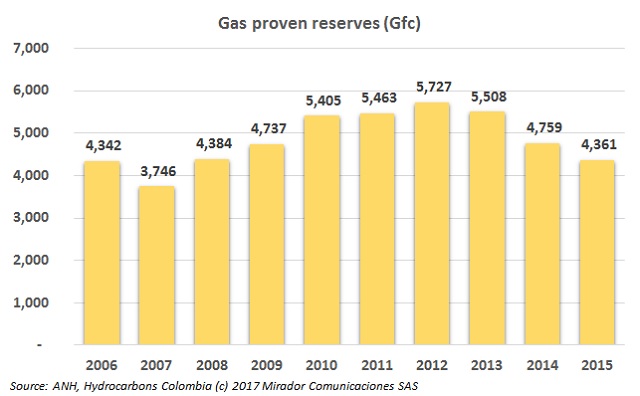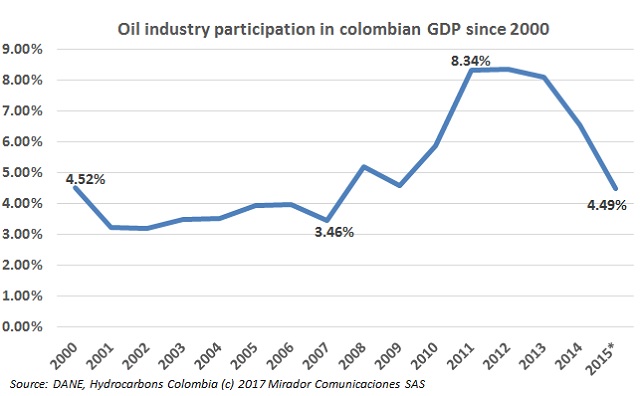Prospects for this year are positive in the gas sector. Colombia will reactivate exploration especially in offshore fields. The industry will make large investments in E&P and infrastructure.
Comptroller General, Edgardo Maya gave new details on the opening of a chicken broiler and a spa with royalties destined for the Cauca Science, Technology and Innovation Fund, and projects financed with the General System of Royalties’ (SGR) budget were approved in Meta, Putumayo and Guajira. These and other stories in our Royalties periodic summary.
The Colombian government already identified 43 blocks apt for using unconventional techniques. This has caused major controversy among environmentalists in the country.
The government decided to liquidate the energy distributor Electricaribe and its owner, Gas Natural Fenosa has sued Colombia. The United Nations Commission on International Trade Law (UNCITRAL) will be the judge.
The idea of allocating a portion of the royalties budget to finance the post-conflict process has been controversial in the country. Not only has the Inspector General said it will “check the initiative with a magnifying glass”, but President Santos announcement of allocating science and technology resources to build tertiary roads caused a major discord in the country.

Gas supply has been one of the main issues in the country. The government has identified the main investments that the natural gas industry needs to guarantee self-sufficiency in Colombia. .
The new resolution will define the conditions for biogas and biomethane service at a domestic and industrial level in Colombia in terms of quality, safety and tariffs.
Colombian President Juan Manuel Santos, met with members of the sector to discuss the challenges for this year. At the meeting, they also talked about the sector’s progress during last year.
Communities often complain about low hiring of local labor. Authorities have issued a new regulation on this subject for department of Meta.

The oil industry has had to face a complicated situation in recent years. The oil price drop affected all companies in the sector. Opinions are mixed about performance this year.